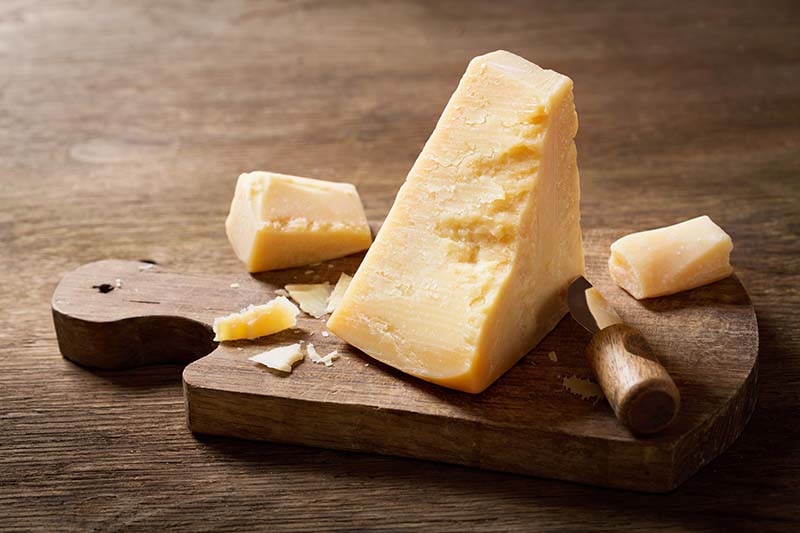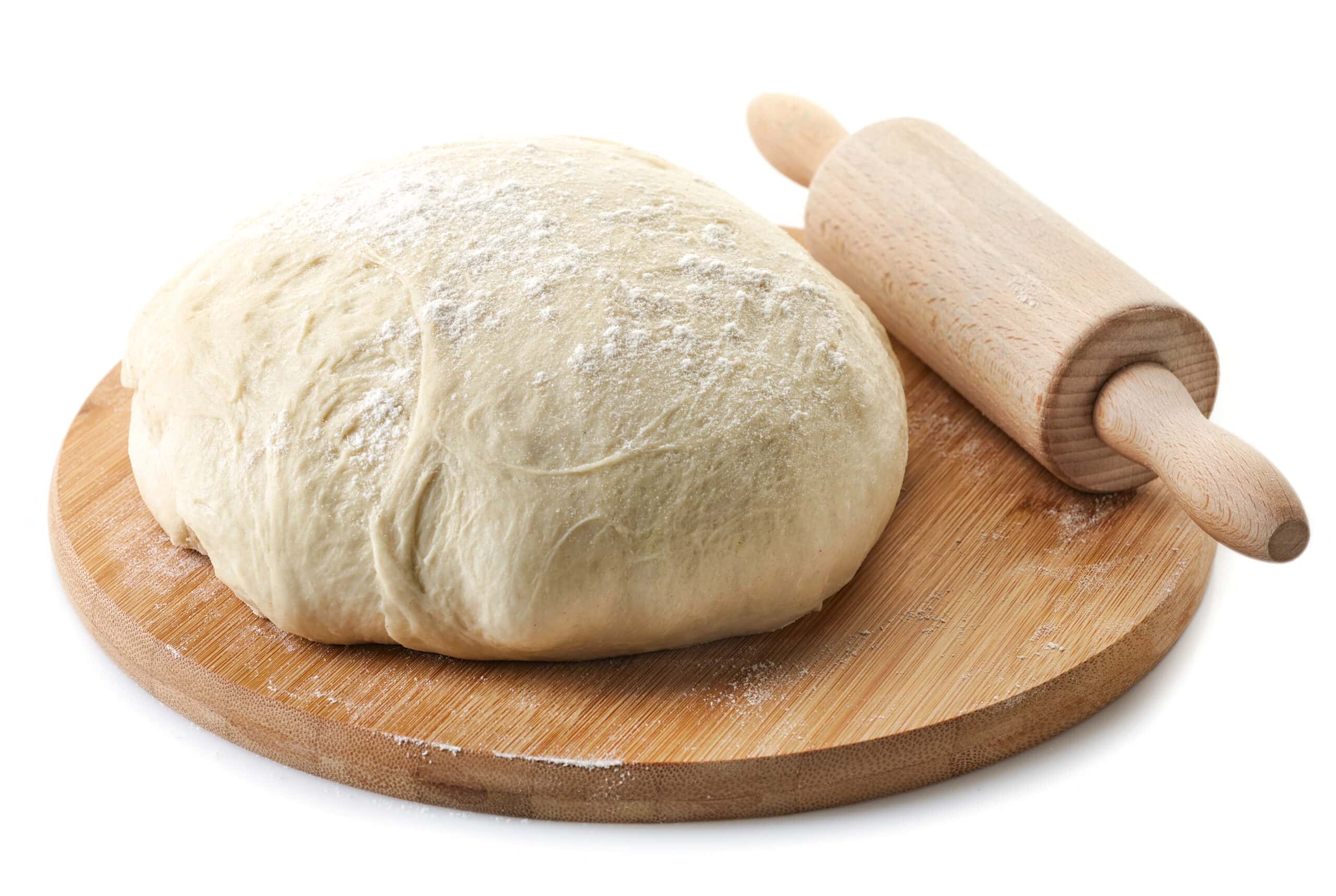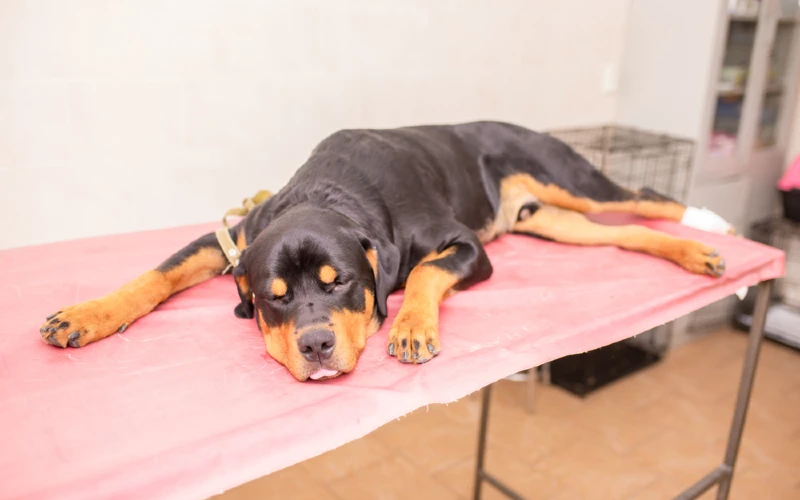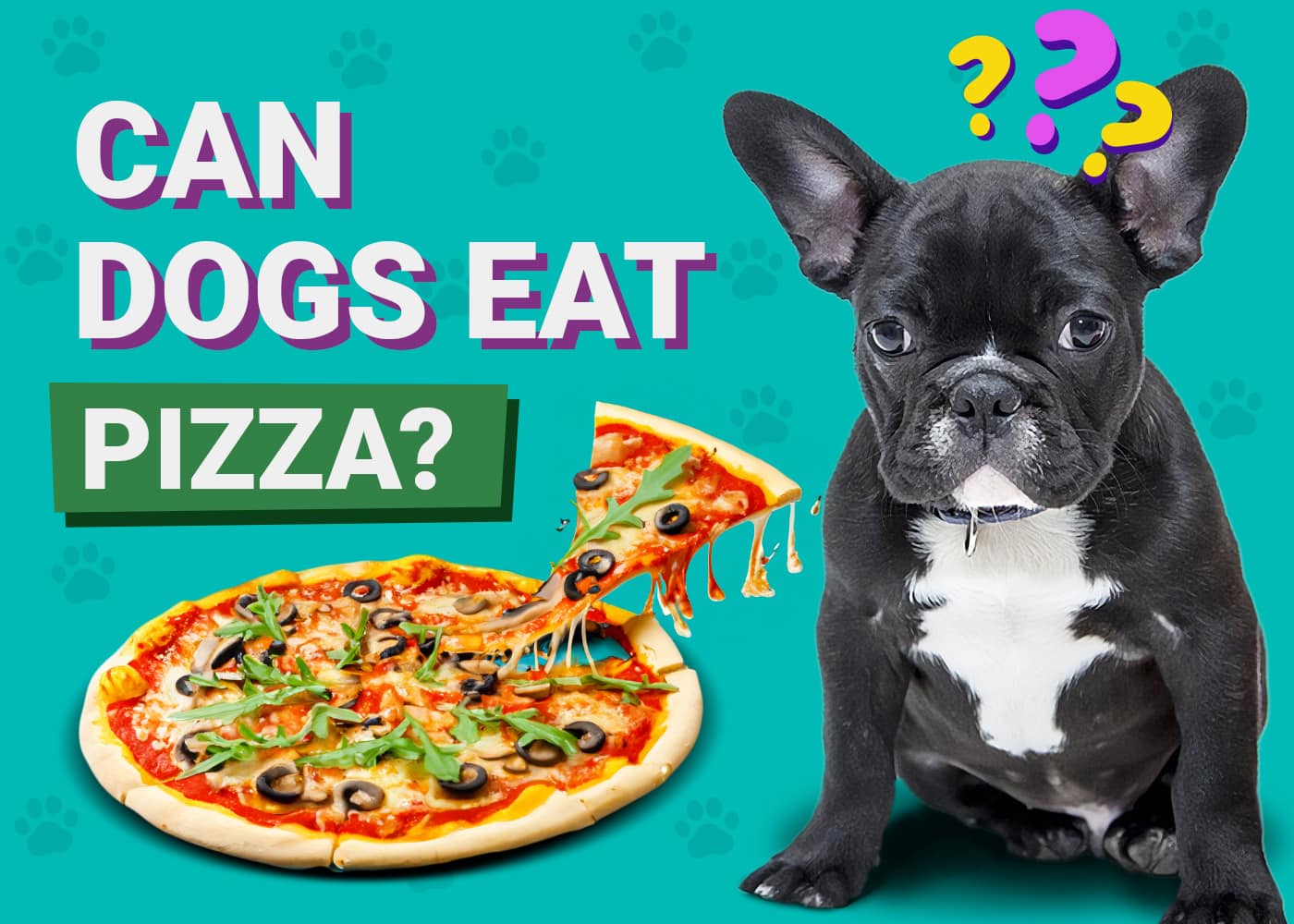Click to Skip Ahead
Pizza is undoubtedly a staple in the US, with more than 6,000 slices consumed in a person’s lifetime. That’s a lot of pizza! Since pizza is such an American favorite, dog owners know that pizza is a coveted food item dogs would like to share with you (mine watches with drool each and every time), but can dogs eat pizza? Is it safe? To a dog’s disappointment, no, pizza is not a safe food to give your dog.
In this post, we’ll explain why you shouldn’t give your dog pizza along with a proper diet for your pooch to keep him happy and healthy.
Why Can’t Dogs Eat Pizza?
Upon hearing he can’t have pizza, every dog in America would cover his ears with his paws if he could, but it’s simply not healthy for them. We all know you can order just about any kind of pizza you want, from plain cheese to pepperoni to the works, which gives variations to the danger of your dog eating pizza. Let’s break down certain ingredients to better understand the dangers of dogs eating pizza.

Ingredients
You have many choices when it comes to selecting ingredients for your pizza, but the most common ingredients are cheese, the base, and tomato sauce. However, some people pile on as many toppings as they can, with some being toxic to dogs, such as onions and garlic.
Cheese
While cheese is non-toxic to dogs, it doesn’t mean they should eat it. Most dogs can eat a little cheese here and there with no problem, but some dogs are lactose intolerant. A dog with this issue can develop vomiting, diarrhea, gas, and overall discomfort after eating a little cheese, so it’s best to avoid it if you know your dog is lactose intolerant. If you’re unsure, you can try a little piece to see how your dog does, but generally, it’s not a healthy treat.
Cheese is also high in saturated fats and salt, and giving your dog cheese in abundance can cause obesity and, worse, pancreatitis.

Tomato Sauce
Tomato sauce is typically derived from ripe tomatoes, which isn’t a problem for dogs to consume. However, the tomato sauce used on pizzas will likely have toxic additives and seasonings, such as garlic. Other ingredients in pizza sauce, such as salt, oil, and sugar, are unhealthy for your dog and can lead to health problems down the road.
Crust and Dough
First and foremost, it’s a medical emergency if your dog consumes raw dough. If you have a counter surfer, you must keep raw dough out of reach while making a pizza at home. Raw dough will expand in your dog’s stomach due to the warm environment, which can lead to a distended stomach or, in some cases, bloat.
Yeast in dough produces alcohol and carbon dioxide gas due to the sugar, called fermentation, which makes the dough rise—this can lead to alcohol poisoning in your dog when it enters the bloodstream.
Secondly, pizza dough may have harmful ingredients, such as onions, garlic, and herbs. Unless you make the pizza yourself and know exactly what’s in it, you should refrain from feeding your dog pizza crust.

Pizza Toppings
Pizzas come with many options for toppings, and some are toxic to dogs, such as onions and garlic. Pepperoni, sausage, or ham are common toppings that are not toxic to dogs, but they are high in fat and salt, which can lead to obesity and other health issues if given often.
Should I Worry If My Dog Ate Some Pizza?
Suppose you place your plate down for a minute, and your pooch swoops in for the perfect opportunity to nab a delicious bite—is this a cause for concern? The answer here is, it depends. Most times, it’s not a medical emergency unless your dog eats raw dough. However, if the crust or toppings contain onions or garlic, you may need to contact your vet. In some cases, your dog may develop a runny stool but should recover quickly.
It’s important to monitor your dog for signs of tummy upset, such as diarrhea, vomiting, lethargy, dizziness, or drooling. If you notice these signs, contact your vet immediately.

What’s the Best Diet for My Dog?
Dogs require a complete and balanced diet comprised of high-quality protein, healthy fats, vitamins, minerals, carbohydrates, and water. The dog food you feed should adhere to AAFCO’s nutritional guidelines, and it should be free from artificial preservatives and additives. Ensure the food is age-appropriate, and when in doubt, use your veterinarian as a resource to determine the best diet for your particular pooch.
Conclusion
As much as your dog may beg for some, pizza, in general, is not a healthy treat to give your canine kiddo. There are simply too many questionable ingredients in pizza that could cause tummy upset and be toxic to your dog. In the end, it’s best to avoid feeding your dog pizza; instead, provide healthy treats made specifically for dogs, and always avoid onions, garlic, herbs, and raw dough.
Featured Image Credit: Jumpstory












